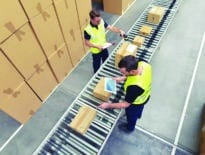Gov. Charlie Baker deserves some measured credit for a $50 million plan he announced last Tuesday to speed up efforts to get the MBTA to a state of good repair from the currently-estimated 13 years. It may have taken a furtive, late-night visit to the scene of the Red Line derailment, as reported by Commonwealth Magazine, but he’s realized the status quo is not enough.
However, anyone who’s been paying attention knows that $50 million is utterly insufficient to get us out of this transit tailspin.
As C.A. Webb, executive director of the Kendall Square Association, noted in her open letter to Baker last Monday, even if the MBTA could function properly on its current budget, the Baker administration is doing precious little to make the kinds of investments needed to keep the Boston area functioning in future years. The UMass Donahue Institute’s prediction that the area’s population will grow 20 percent between 2010 and 2025 should be enough to make even the most die-hard fans of the status quo shiver.
Voters are seeing the more immediate consequences of Baker’s slow-and-steady approach. A MassInc/WBUR poll released last week (see Week on the Web, page 2) found just 29 percent of Greater Boston voters polled approved of his handling of the T, and 52 percent disapproved. A large majority felt the T was either in crisis or has “major problems.”
The poll also highlighted why Baker is reluctant to jump on the “net new revenue” bandwagon. While most voters surveyed think public transit helps improve traffic, no one way to raise new taxes currently commands their support, from gas tax hikes and congestion charges to seemingly uncontroversial fees on Uber and Lyft rides. The “millionaire’s tax” received broad support in the poll, but if it passes in 2022 its revenue is still a long time from hitting state coffers – several years longer than Massachusetts can afford to wait.
To his great credit, House Speaker Bob DeLeo has done yeoman work to organize what he promises will be a robust discussion of new transportation revenue later this year, and to pull the state’s sometimes-reticent business groups off the sidelines to head off potential opposition to new transit revenues.
However, that debate needs more than well thought-out tax proposals to bear any fruit. It needs concrete proposals on the table to help taxpayers understand what they will get for their pains. Will the new revenue allow the T to run trains from Kendall Square to the Longwood Medical Area? By what date will the commuter rail be electrified and run frequent, subway-like service all day? How much faster and more reliable will buses become if dedicated lanes are spread throughout the suburbs? How much better will that make everyone’s lives?
The last thing Massachusetts’ public transit systems need is a defeat like the 2014 gas tax rebellion, which cost them valuable funding dollars. Fortunately, advocates like Transit Matters and Transportation for Massachusetts are overflowing with well-though-out ideas that political leaders can use to rally Bay Staters around a path towards a more mobile, lower-carbon future.






